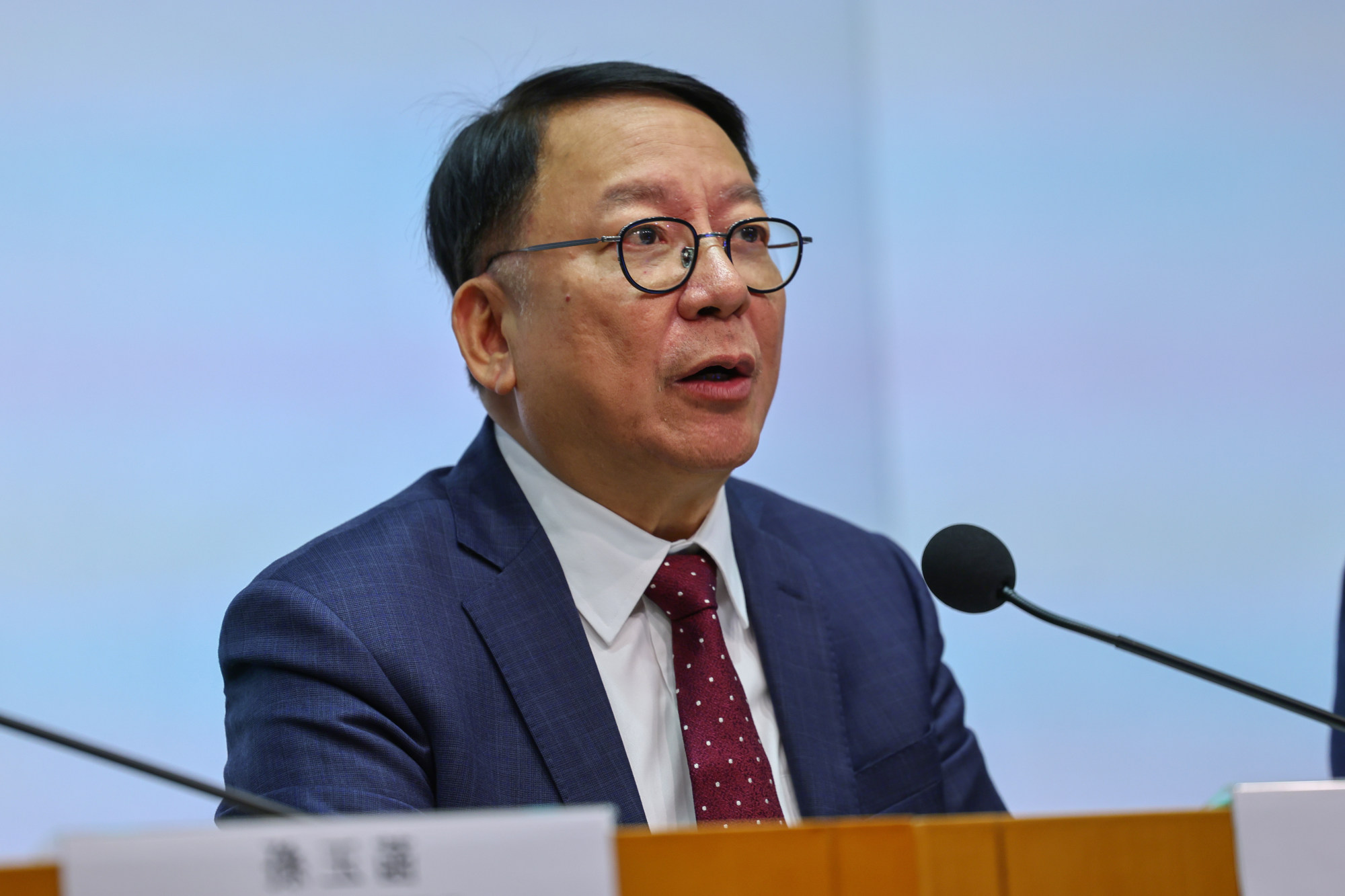
Strive and Rise mentoring scheme found to give needy Hong Kong students a lift in financial planning skills, self-confidence and sense of belonging
- In a bid to boost their social mobility, 2,800 Form One to Three students, mostly living in subdivided flats, were enrolled in first round of programme
- An evaluation of the programme found that students made improvements in all eight targeted aspects
A mentorship scheme designed to lift underprivileged Hong Kong pupils out of poverty has helped them improve in all eight targeted aspects, with notable progress in financial planning skills, self-confidence and sense of belonging, the city’s No 2 official has said.
Chief Secretary Eric Chan Kwok-ki, who supervises the Strive and Rise Programme, also revealed on Friday that more mainland China exchanges would be organised for the second cohort, expected to be 4,000 students, about 43 per cent more than the 2,800 in the first round.
“The progress the students have made aligns with the objectives we set in the 2022 policy address, which truly encourages us,” Chan said, referring to the government’s goal of ensuring no less than 70 per cent of pupils made improvements through the scheme.
“I hope the programme can continue, with the goal of covering a cumulative total of 12,000 students by 2025-26.”
The first round of the programme – a collaboration between the government, business sector and the community – enrolled 2,800 Form One to Three students, mostly living in subdivided flats, in a bid to boost their social mobility.
From October 2022 to November last year, each young person was assigned a mentor and received HK$10,000 (US$1,278) throughout the programme, which included mandatory courses as well as optional classes and tours. The students decided how they used the money.

An evaluation, which compared self-assessments done by 2,458 students before and after the programme, found that improvements were made in all eight targeted aspects – self-confidence, resilience, responsibility and empathy, social network ability, sense of belonging, financial planning skills, object setting and self-esteem.
Among them, a nearly 12 per cent increase in points was logged under the financial planning skills, which was evaluated on a scale of one to six, the top mark. The students rated themselves at 4.22 points compared with a pre-scheme 3.77.
Around 5 per cent rise in points were seen in aspects of self-confidence and sense of belonging.
Nearly 94 per cent of the students recognised they had improved in at least one targeted field, with 70.4 per cent improving their abilities in at least three, the evaluation also showed.
The students’ carers and mentors were also asked to assess the programme, with the former agreeing with their children in financial skills enhancement, while the latter held the students had gained the most in self-esteem.
“Students, caretakers and mentors all reckon that group activities had offered the greatest help for students,” said Eric Chui, head of Polytechnic University’s department of applied social sciences, who was tasked with carrying out the evaluation.
He said common concerns expressed by the students centred on arranging activities since they had to balance the time for study and meeting mentors, especially around final exam periods.
The government did not provide any data on the number of meetings between the students and mentors, or the average time of each one. The scheme had planned 12 meetings in a one-year period for each student.
Chan said 12 meetings were a desired result not an “indicator”.
“Most of our mentors are highly dedicated and committed. Since our programme is voluntary in nature, our mentors do not receive any financial compensation,” Chan said, adding he understood that some might not manage to arrange 12 meetings because of busy work schedules.
“I don’t think there are any complaints from the students. Less than 1 per cent of enrolled students dropped out of the programme because they were occupied by their studies,” Chan said.
The government completed the recruitment of students for the second cohort in November, but has not yet announced a starting date.
The second cohort will have 4,000 students from Four One to Four – one more grade than the previous round, as Chan said improvements were more remarkable among more senior students.
He also revealed that the government had received HK$30 million in donations from the business sector and community for the second phase. The scheme’s first round was funded by HK$140 million public donations.
According to the Census Department, 222,600 children below the age of 18 could be classified as living in poverty in 2023. This is 23.8 per cent of the age group.

